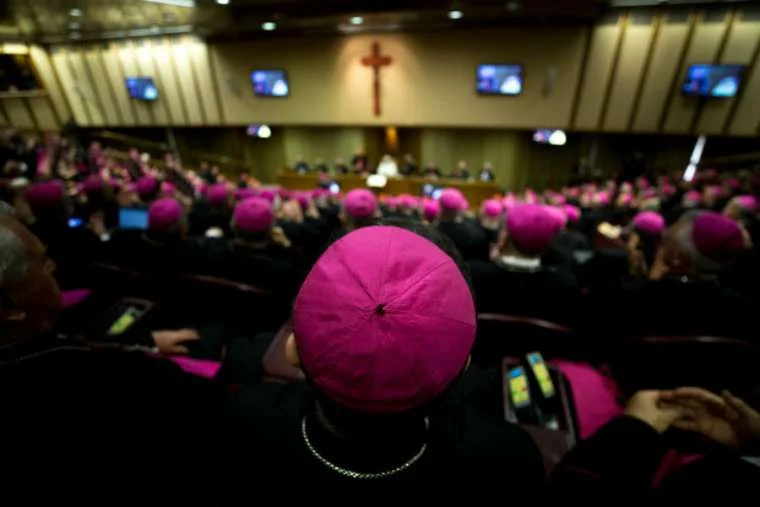If the achievements-based culture is what we might need to question, and if just allowing kids to always do what they want is not exactly the solution, then how else might we think about how and why young people pursue enrichment and develop competencies? Perhaps a key is to focus on excellence rather than achievement. To help draw out what I am thinking of here, let me share some recent experiences from our oldest children’s school, which we intentionally chose for them because this school is designed with the intention of liberating young people from the goal-gobbling college preparatory race for the sake of guiding them toward a love of wisdom, personal enrichment and holistic learning.
Reflection and Practice: Helping You Form Others in Faith
This approach to faith formation is flexible but it definitely requires buy-in. No good faith formation ever takes place without the commitment and personal investment of a team of leaders. The leaders for this approach to faith formation are, primarily, parents and mentors, godparents and sponsors. This is not at all meant to replace the parish – to the contrary, this empowers the parish to do what the parish is meant to do: empower the faithful to take responsibility for the mission of evangelization.
Power and Wisdom: The Genius of the Catholic Whole
A Better Way to Form People for the Sacraments
I think that, for the most part, we in the Church have become too dependent on textbooks and third-party programs to run religious education in Catholic schools and parishes alike. This is not the Christian way of formation because the most important resource for those who are being formed for discipleship is, actually, you.
Why Are There Two Editions of 'Turn to the Lord'?
Prioritizing Faith in College
If you try to “keep your faith” in college, you’ll likely fail. “Keeping your faith” is a defensive position in a game of stamina with the odds stacked against you. You don’t prioritize something by waiting to see what happens with everything else first so you can make the important thing “fit.” That’s the biggest mistake when it comes to developing your faith in college. The first and most critical step is to make basic, intentional commitments right from the start.
A Different Proposal for Reopening College in the Fall
My Articles Related to the Coronavirus
The gift (and responsibility) of Catholic schools
Biographies of saints that get it right, Part 4 of 4
You cannot tell the story of a saint without telling the story of God’s love for his people. The saint is where the love of Christ is made manifest in a particular way, in a particular time, for particular communities and people. Saints never stand alone: Christ is with them, and they bring Christ to others.
In this fourth and final installment of this series on biographies of the saints, we examine two works: “Oscar Romero and the Communion of Saints” (Orbis Books, $24) by Scott Wright with Octavio Duran, and “Bakhita: From Slave to Saint” (Ignatius Press, $16.95) by Roberto Italo Zanini — both testify to the presence of communion in the life of every saint.
Resource for Adults to Form Young People in Faith
Catholic School Administrators and Faculty: A Resource
(Check out this resource for Catholic school administrators and faculty)
By clearly articulating “what matters most,” we can more clearly see where we are, where we hope to be, and how we get from one to the other. As Catholic high school administrators and faculty, reading this book together will help you to find space and inspiration to talk about the most important things about your school and your students.
Breaking News: Teens and Their Parents Have Meaningful Conversations
“I really feel that I am always moving from one event to another constantly. I fail to be in the moment and appreciate where I am. I am caught up in the moment and I don’t make true connections with people. When I am rushing I start to interpret people’s actions and how they should show their love. You said ‘deep listening does not just happen’ and to make time for deep listening I need to become practiced in taking time and practice giving time. I may be a busy person but the reason why I am not making deep connections with other people is because I am not giving them my time.”
– Allison, HS Junior
The task of building Catholic communities at schools and parishes
Priests: Formed as Men of Communion
The Saints in Our Catholic Schools
The Real Work of the Synod of Bishops
Google Classroom and the Unintended Consequences of Unintentional Decisions
A Short Reflection on Three Home Football Weekends
…This is of course part of the culture at Notre Dame—the cost for all the extraordinary benefits that the football program affords the university and its community (and they are extraordinary, not only in financial terms but in communal terms also). But the sequence of three straight weekends at the very start of the semester has been, in my view and the view of the students I talked to yesterday, unfair and actually rather cruel to our students. We have not put them in a position to start strong this year and to set a foundation for success. Instead, they’re already behind and playing catch-up. …













